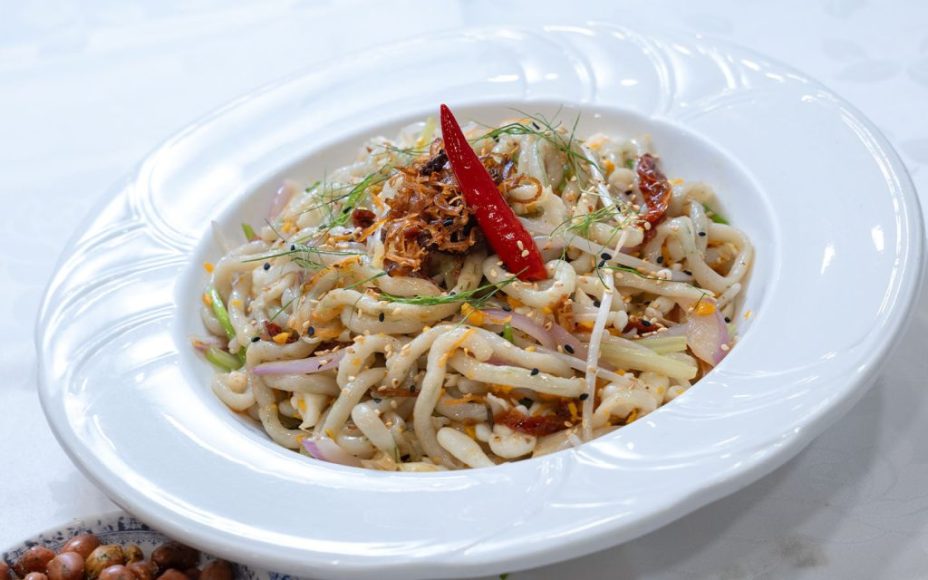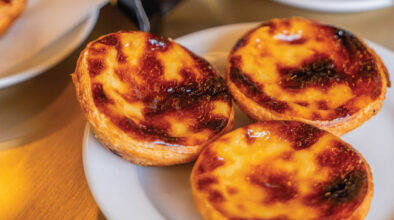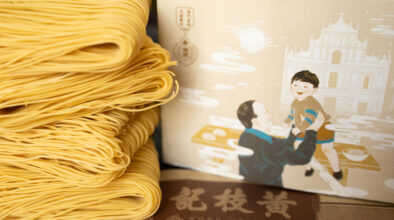Neon signage. A shrine dedicated to the Chinese god Guan Gong. Luridly glowing fish tanks. Son Tak Kong has all the hallmarks of a traditional Shunde restaurant – an impression enhanced by the 45-year-old eatery’s location on bustling Rua dos Mercadores (‘Street of Merchants’ in Portuguese), where roast duck vendors rub shoulders with herbalists beneath a medley of colourful shop signs.
Despite its quaint appearance, the establishment strives to breathe new life into Shun Tak cuisine, the Cantonese style of cooking from Foshan’s southern Shunde District. In 2014, Shunde was designated as a UNESCO City of Gastronomy.
Shunde chefs are all about fresh ingredients and authentic flavours, enhanced primarily by very basic seasonings such as salt, oil and sugar. Son Tak Kong’s owner, Sunny Ip Sio Man, puts it like this: “The chicken tastes like chicken, and the goose tastes like goose.”
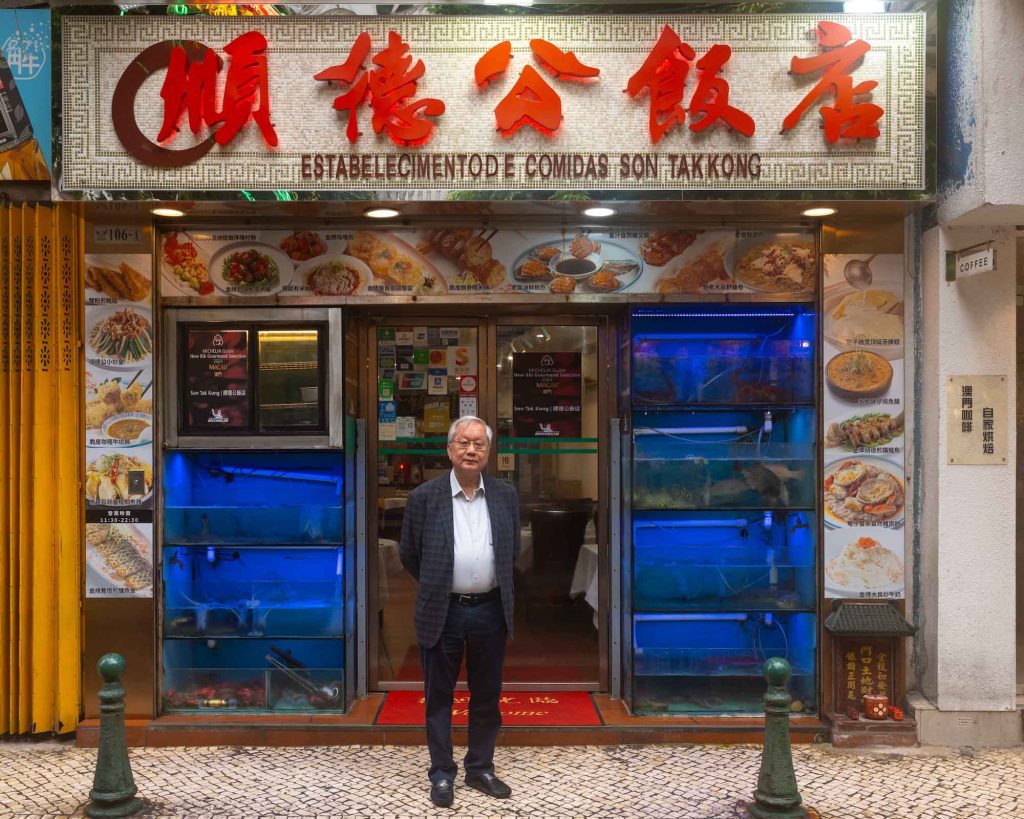
While the restaurant has always kept a low profile, the fact that it’s usually full – and sometimes hosting the odd celebrity – speaks to the quality of its food. This year, Son Tak Kong’s excellence was officially recognised with a Bib Gourmand award by the Michelin Guide. Bib Gourmands reward friendly establishments serving good food at great prices. It’s not the same thing as a Michelin Star, but it’s “most definitely not a consolation prize” (according to the Michelin Guide’s website).
Son Tak Kong’s new status is evidenced by several Bib Gourmand posters now adorning its walls. “We are extremely happy to earn recognition,” Ip says, acknowledging that the achievement was a collective effort.
Where tradition and change work together
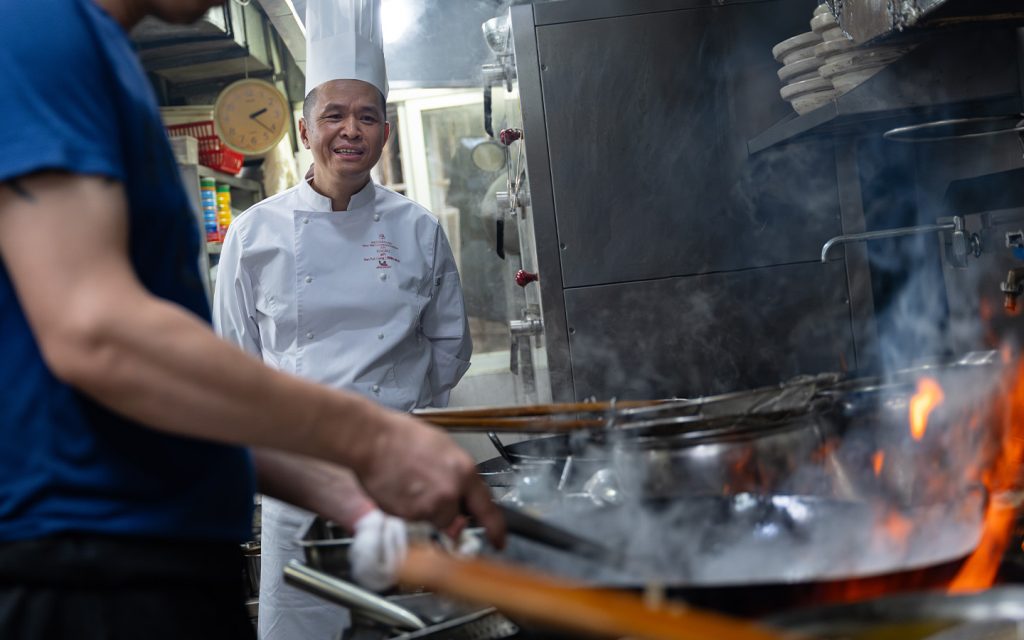
Son Tak Kong embraces tradition and many Shunde classics, like stir-fried milk (think fluffy clouds of curds made with milk, starch and egg whites) and Daliang-style fried chicken rolls, sit proudly on its menu. But the restaurant isn’t afraid to shake things up either.
Take Ip’s Shunde-style fish soup. His version contains wattle-necked softshell turtle, a luxury ingredient you won’t find in the dish elsewhere. His glutinous rice dim sum, lo mai gai, is served in a novel way that’s reminiscent of a roast chicken (an actual chicken head is included in the presentation). Son Tak Kong’s menu also includes seasonal dishes, along with a few non-Shunde offerings like hand-made fish noodles and mapo tofu.
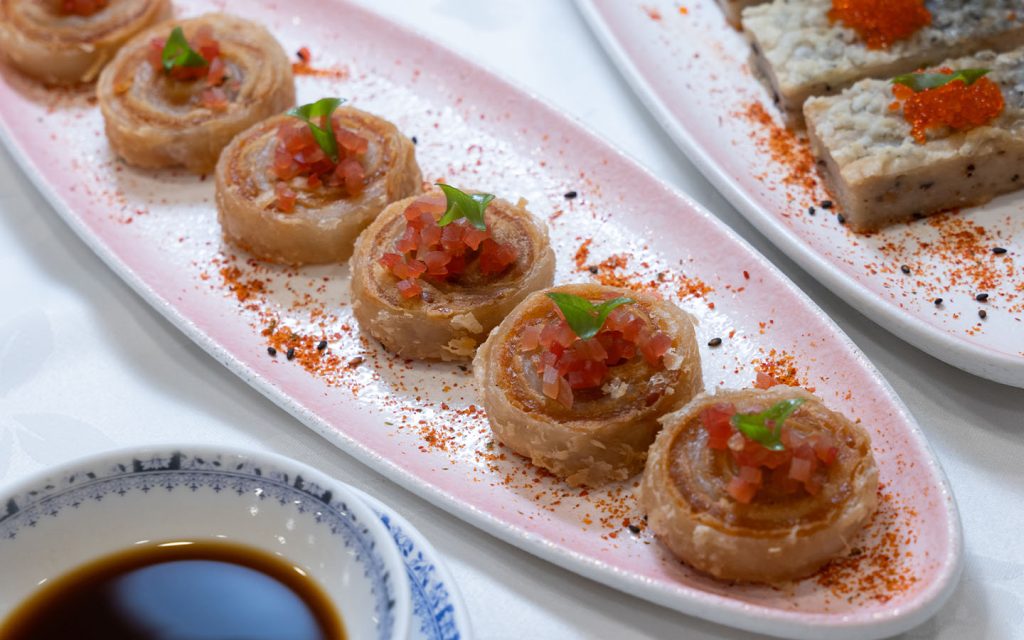
Shunde is Ip’s ancestral homeland. And the 71-year-old aims to honour his family’s food heritage without clinging too closely to old rules. “We strive to innovate without forgetting our roots,” is how he puts it. His parents relocated to Macao in the early 1950s, just before Ip was born. His father promptly opened the Shunde-style restaurant Chu Kei on the corner of Rua dos Mercadores and Avenida Almeida Ribeiro (also known as San Ma Lo), very near where Son Tak Kong is today. When Ip’s dad passed away in 1965, the then-12-year-old was left to juggle studies and running the family business with his mother.
Ip had a short stint as a journalist after leaving high school, enhancing his skillset by studying management during his free time. He returned to the family business after a few years, when his mother fell ill, and set about building a modest eatery empire. Ip expanded his father’s original restaurant and established a number of new ones, including Son Tak Kong.
A food business through the decades
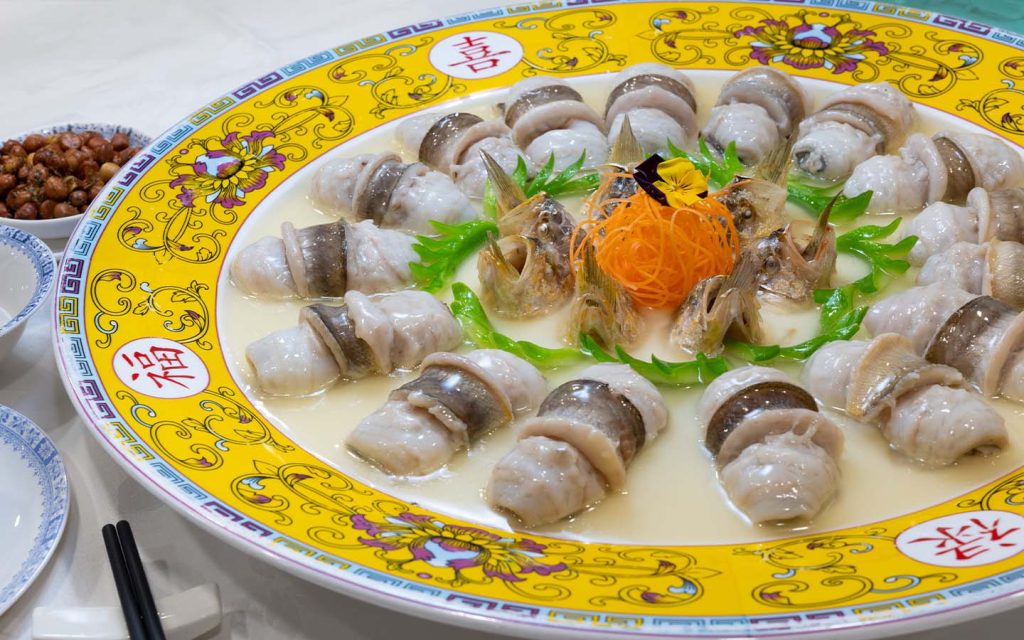
Back in the 1960s and 1970s, Ip remembers that most of his diners hailed from Hong Kong. They’d arrive by boat, disembarking from the Inner Harbour’s Ponte 16. Then, as travel to and from the mainland began opening up in the 1980s and 1990s, he started welcoming more patrons from around the Pearl River Delta. They journeyed overland, via the Kee Kwan bus station, then made a beeline for Macao’s historic centre.
Business boomed until the late 1990s and early 2000s, when Ip says Son Tak Kong was forced to weather blips like the Asian financial crisis and the SARS epidemic. But the restaurant bounced back stronger than ever thanks to China’s Individual Travel Scheme, he recalls. Launched in 2003, the scheme enabled a new wave of independent travellers to visit the Special Administrative Regions of Macao and Hong Kong. When the Hong Kong-Zhuhai-Macao Bridge opened in 2018, customer numbers jumped again. Ip says most of that wave were older folk, revisiting Macao’s historic district as part of a trip down memory lane.
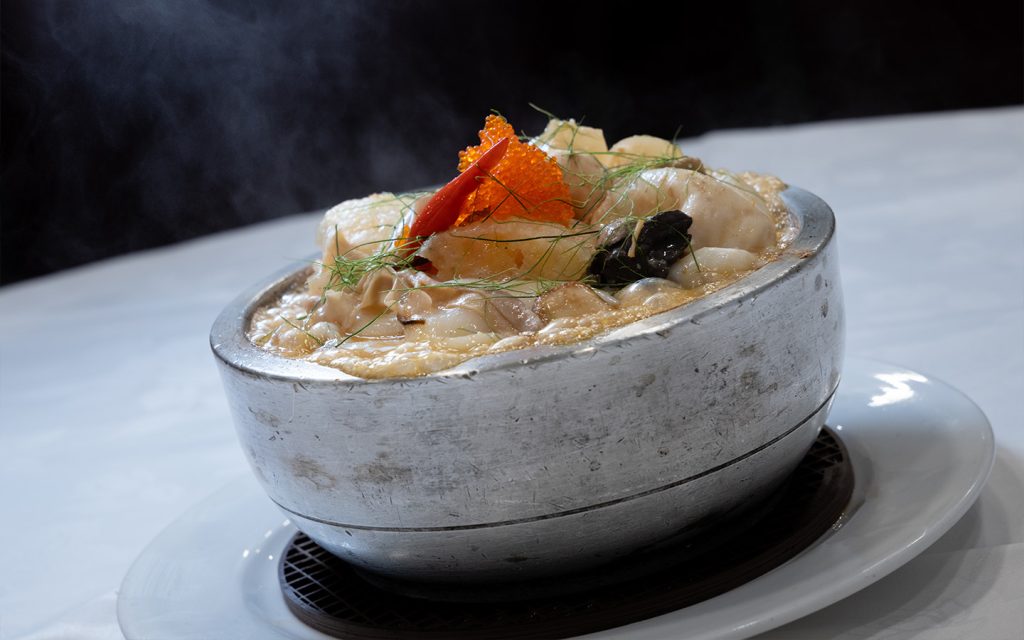
But then came the Covid-19 pandemic, causing Son Tak Kong to switch things up to survive. Ip says he had to reduce his operating hours and pivot towards takeaway meals. “We focused mainly on stir-fried, pan-fried, deep-fried and braised dishes [because they travel well],” he says. Old favourites, the likes of steamed crab with minced meat and sweetened bird’s nest with ginger milk pudding, were still on offer as discount meals for two or four people to eat at home. For a few months of 2022, Ip closed the restaurant completely – taking the opportunity to carry out some renovations to the building.
‘We need to continuously improve’
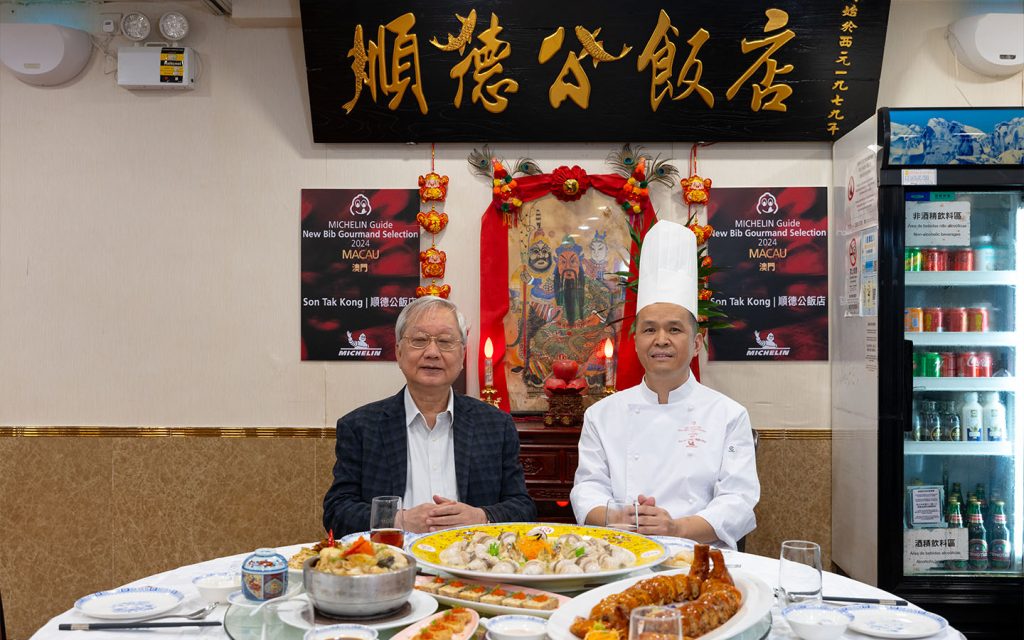
Today, Son Tak Kong employs around 10 staff and still focuses on lunch and dinner services. Ip says his customer base is evenly divided between local, mainland and Hong Kong diners – though notes he’d like to see an increase in locals supporting local businesses. Ip’s willing to do his bit to achieve this: “We need to strengthen ourselves and work harder,” he acknowledges. “We need to continuously improve, and to tweak our dishes to attract local diners.” Luckily for Ip, he has a son set to take over the business when he eventually retires. He says his son is equally dedicated to growth and progress.
With Son Tak Kong’s future secure, diners can look forward to a third generation of the Ip family’s take on Shunde cuisine. And now that the restaurant’s finally made its way into the spotlight, as shown by the Michelin Guide, there’s a good chance the accolades will keep on coming.
